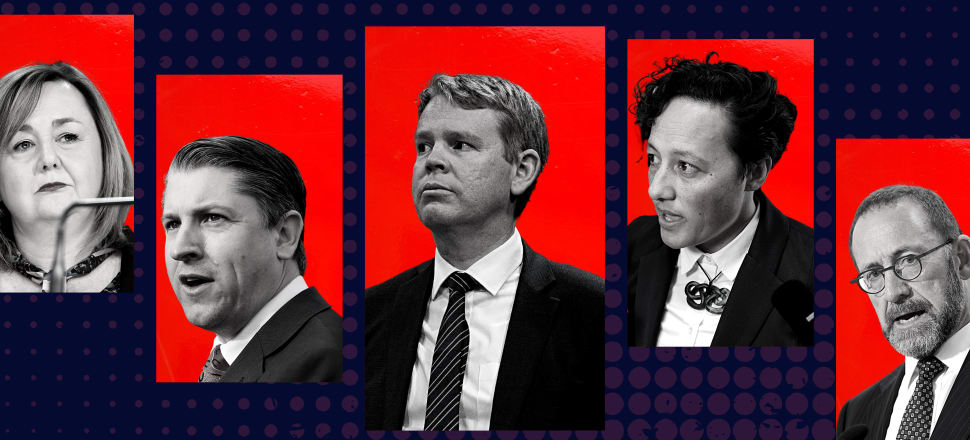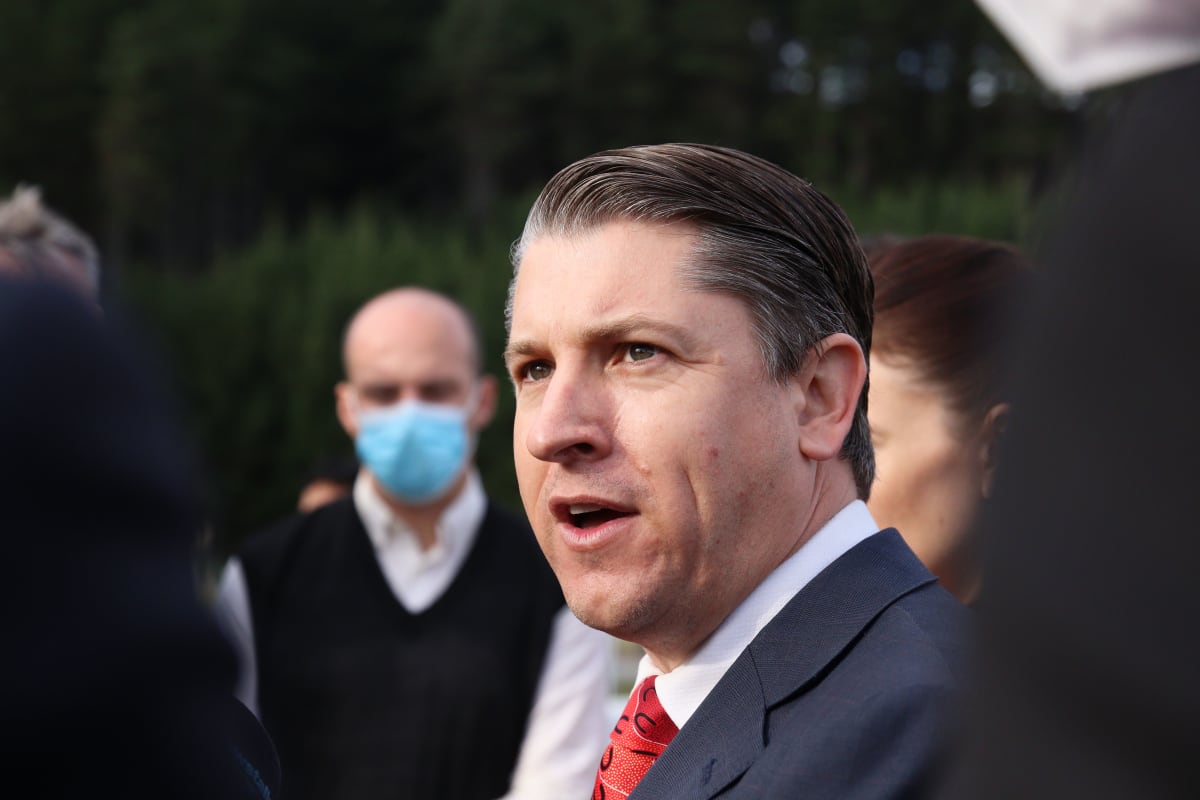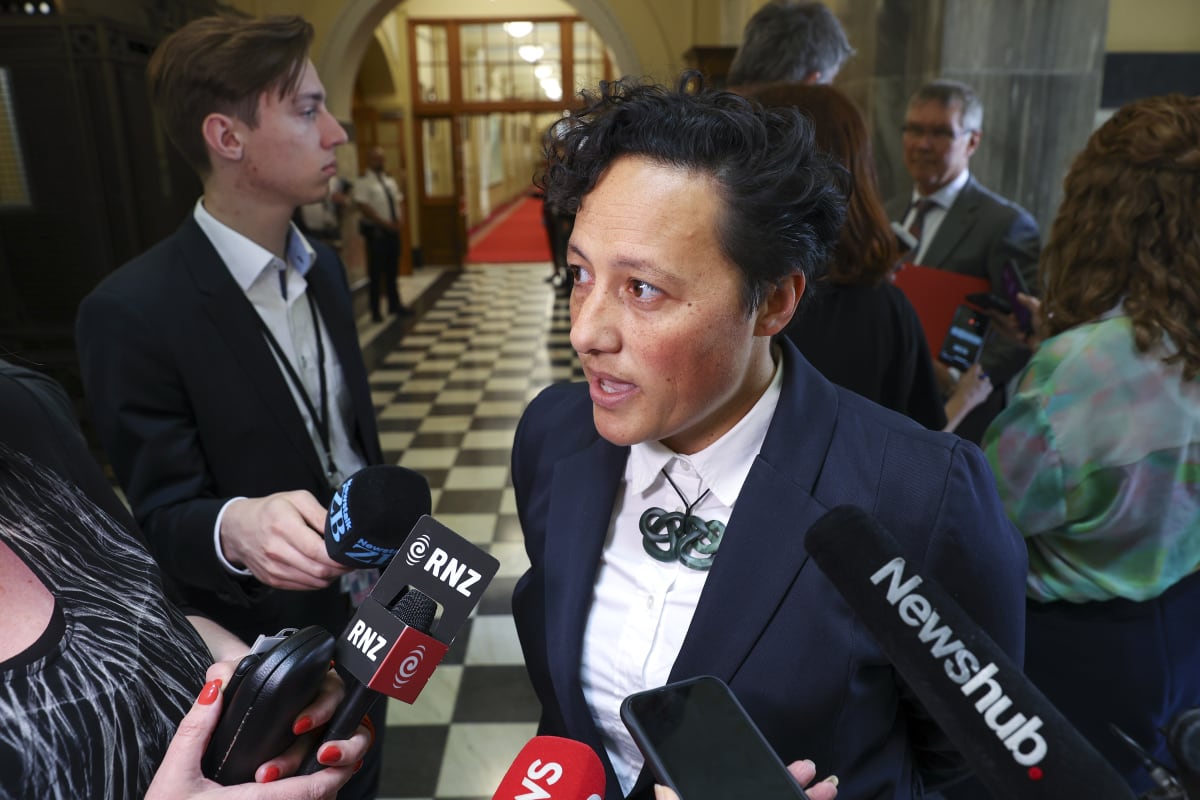
Jacinda Ardern's decision to step away from politics leaves the role of Prime Minister up for grabs. Newsroom looks at the pros and cons of those who may put their hand up to replace her.
The dust has barely settled on Jacinda Ardern’s shock resignation, but with the outgoing Prime Minister’s leaving gift for the nation taking the form of an official date for this year’s election (October 14), there is precious little time for the Labour government to find a replacement.
A decision may come as soon as this weekend, if any candidate can secure a two-thirds majority when the Labour Party caucus meets this Sunday, while Ardern has recommended a contested vote involving the wider party membership take place by February 7 at the very latest.
READ MORE: * Jacinda Ardern to resign as Prime Minister * Ardern's rare, personal candour in shock resignation
The one contender who could almost certainly have cleared the rest of the field, Ardern's deputy prime minister Grant Robertson, has already ruled himself out, describing the role as "a job that you must unequivocally want to do in order to do it the justice it deserves" in a statement released mere minutes after the news broke.
Labour's deputy leader Kelvin Davis has also indicated he has no intention of putting his hat in the ring – but there will be plenty of others who prove "unequivocally" keen to stand, even if they are staying mum for now. The race is still taking shape, but here is Newsroom's rundown of the likely frontrunners to replace Ardern on the ninth floor of the Beehive.

CHRIS HIPKINS - the familiar face
While Ardern and former director-general of health Dr Ashley Bloomfield were the main 'stars' of the Government's ongoing Covid-19 press conferences, Hipkins was a crucial member of the supporting cast as Covid-19 response minister (who can forget his accidental encouragement for Kiwis to "spread their legs" when speaking about how to safely exercise during the pandemic?).
The Remutaka MP has been one of Labour's most reliable figures during its two terms in power, juggling a number of critical portfolios and most recently being called upon by Ardern to become police minister amidst a wave of negative headlines about rising crime. Hipkins would face less of a challenge than others in building up name recognition with the wider electorate, while his 15 years in Parliament mean he is well-versed in the ups and downs of an election campaign.
That experience could be a drawback, however, if the caucus or the Labour membership decide they need a fresh face to lead the party and reset its flagging brand. His role in the Covid-19 response could also make him a target for fringe elements, although those Kiwis would never vote for Labour anyway.
Finally, there is the fact that the last three prime ministers to serve at least one full term in office lived in Auckland, meaning the Wellington-based Hipkins would be breaking recent precedent if he led Labour to victory (John Key's successor Bill English also resided in the capital at the time of the 2017 election, although his defeat to Ardern does little to dispel any superstition).

MICHAEL WOOD - the chosen one
Hipkins' main competition is likely to come from Wood, the transport minister and Mount Roskill MP who has for some time been tipped as a future Labour leader and prime minister.
Wood is less than two years younger than Hipkins, but he came into Parliament eight years later, which would help any claim to represent Labour's next generation of political talent. He has largely performed well to date in his ministerial roles, although immigration has proved a political minefield given labour shortages around the country. Writing for Newsroom, Jess Berentson-Shaw described him as exemplifying "the new model of leadership we need to come to the fore".
The MP has shown a knack for handling himself well in front of media and in the debating chamber, while his Auckland electorate could prove an asset for those inclined to believe a leader north of the Bombays is essential.
However, Wood is less tested than Hipkins given he only gained a ministerial warrant this term, and he also has less of a public profile. Predictions of his political ascent have not necessarily been matched by obvious signs of stardom - although Ardern herself arguably didn't show the full extent of her abilities until after she replaced Andrew Little in 2017.

KIRI ALLAN - the new face of politics
A head-to-head competition between two white, straight men is unlikely to warm the hearts of Labour's most fervent supporters. Enter Allan, a gay Māori lawyer from the regions (namely, the East Coast) who has swiftly risen up the ranks since entering Parliament in 2017.
In her maiden speech to Parliament, Allan outlined her ascent from high school dropout to the halls of power and her desire for others to follow in her footsteps - the makings of a potential pitch to voters. She is a naturally charismatic figure, and Labour's Māori caucus may feel it is time for one of its members to take on the top job, after Kelvin Davis stepped aside after the 2020 election to allow Robertson a clear run to the deputy prime ministership.
Allan would be a high-risk, high-reward choice, given the extent to which co-governance has become a polarising topic and the potential for an unpleasant race-based campaign from some quarters. At points, she has also seemed to struggle with some of the finer details of policy she is overseeing (for instance, with donations reform) which might not augur well for a role where the prime minister is expected to comment on a smorgasbord of diverse issues.
Even if she doesn't run or win the top job, it seems safe to expect some form of promotion from whoever does replace Ardern.

ANDREW LITTLE - the once and future king?
There would be a certain dramatic aptness if Little, who fell on his own sword to make Ardern leader in the first place, ended up as her successor.
Little remains very popular with Labour’s base. A long-time trade unionist and former party president, Little also served as the party’s leader between 2014 and 2017. Of course, Labour’s base will already support the party – the question for Little would be whether he’s managed to bring the public on-side since his last stint as leader. Then, he peaked at 16 percent in preferred Prime Minister rankings. John Key (and later Bill English) consistently got at least triple Little’s support.
The electorate has seen Little in a new light as one of Ardern’s go-to ministers. He was the face of abortion reform and the cannabis and euthanasia referenda in the lead-up to the 2020 election and took the hospital pass of Health Minister to shepherd in the new health system. To some extent, he’s done his penance and earned a better portfolio. Ahead of Ardern’s surprise resignation, he was talked about as a potential new Foreign Affairs Minister.
Little may also have some support from Labour’s Māori caucus and members. He has robustly defended the Māori Health Authority against Opposition attacks and as Treaty Negotiations Minister has handled the delicate issue of Treaty settlements with grace.
All that said, it’s not clear whether he’d want to be Prime Minister. He didn’t say much when asked on Thursday, only acknowledging his previous stint as Labour leader and implying that hadn’t turned out well. Even if he doesn’t want it, however, he could be looked to as a potential compromise candidate – and he’s likely to get a significant chunk of support from members if caucus can’t decide among themselves.

MEGAN WOODS - the dark horse
Megan Woods is seen as the “fix-it” minister, having been brought in to handle the KiwiBuild debacle and overseeing MIQ after failures on that front in mid-2020. Could she also “fix” Labour’s leadership probem?
The Housing Minister kept quiet on Thursday about any potential leadership ambitions. She isn’t the top of anyone’s list. She’s not as recognisable as Hipkins or Little, not as popular with the base as Wood and certainly no generational reset, but she’s something of a jack of all trades.
She also has keen political instincts, having served as campaign manager for Labour’s historic 2020 election victory and having done significant prep work in the same role ahead of this year’s vote. Woods is a brawler in Parliament, not easily flustered and giving back as much as she gets.
That would be a step change from Ardern’s above-the-fray mantra of kindness, but the Prime Minister’s philosophy in that regard had begun to feel a bit stale to the electorate anyway. Maybe a fighter is what Labour needs to resurrect its changes – but we still don’t know whether the top job is one Woods even wants.







